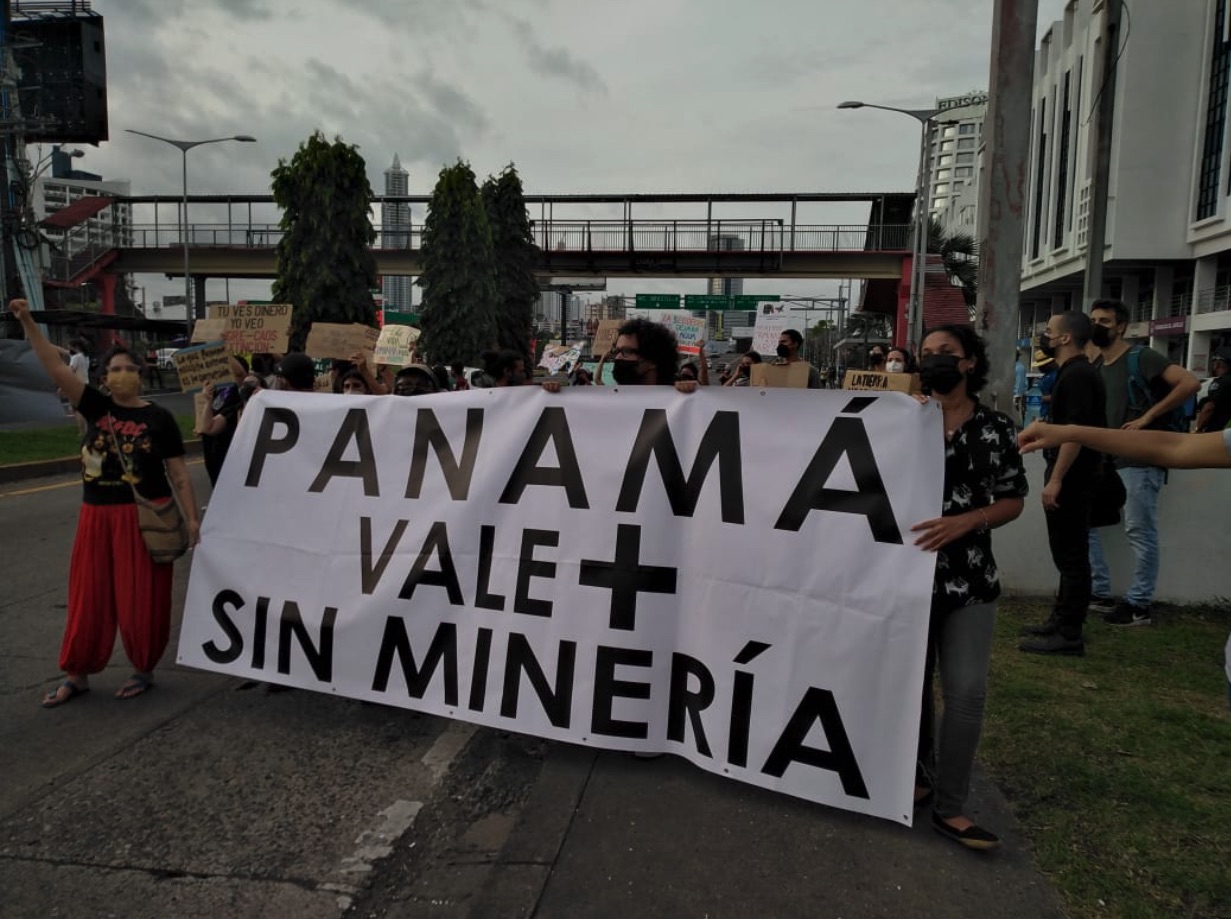Last week, the Panamanian Campesino (small farmers) Union (UCP) and the group “Panamá Vale Más Sin Minería” (“Panama is Worth More Without Mining”) both released public statements denouncing the government of Panama for renegotiating a contract with Vancouver-based First Quantum Minerals to operate its Cobre Panama open-pit copper mine.
First Quantum Minerals is the only company in Panama with an operating mine. But in 2018, Panama’s Supreme Court found that the company’s mining concession was unconstitutional. However, the court decision was not published until late December 2021, leaving a legal vacuum in the interim that allowed the government of Panama to renegotiate the contract “with the aim of securing a bigger share of income from the US$6.5bn copper-gold mine.” Nevertheless, as the UCP points out, "Neither handouts nor royalties will solve the serious economic, social and environmental crisis that the country is facing.”
The two civil society coalitions denounce the lack of transparency in contract renegotiations, given that the public “had to learn about this business deal through the mainstream media” without respect for the many voices from civil society who have already said no to mining. The press reported on a poll carried out in July that found around 60% of Panamanians are opposed to mining in the country.
The UCP statement further denounces a lack of information, as communities report that, “No one knows the real content of what was negotiated or, better put, what the mining company has imposed on us by the government, a coalition of the Democratic Revolutionary Party (PRD) and the Nationalist Republican Liberal Movement (Movimiento Liberal Republicano Nacionalista - MOLIRENA) parties.” Other concerns include labour rights, harms to culture, and environmental destruction – including a recent mine spill that polluted a local river.
Cobre Panama is located in the Donoso protected area within the Mesoamerican Biological Corridor in the province of Colon, 120 kilometres west of Panama City. The statement by Panama Vale Más Sin Minería expresses significant concern about the irreparable harm the project could cause to this corridor. “This new mining contract completely ignores the immense natural and cultural wealth that is being destroyed in a protected area key to ecosystems rich in biodiversity and where, according to the company’s own reporting, 295 environmental infractions were committed in the last three years alone.”
The country's topography and its narrow, megadiverse territory, which includes more than 500 rivers, makes it highly vulnerable to the tremendous environmental and social harms of industrial mining.
Community resistance and the government’s push for mining during a health pandemic
In May 2021, the government of Panama announced a new strategic plan for economic recovery, putting mining at the centre with a green spin — claiming that sustainable mining is possible. This Central American country is one of many in Latin America promoting mining under the pretext of COVID-19 economic recovery and mining for the energy transition, despite the ways that mining undermines truly sustainable development strategies, as a recent report by MiningWatch Canada and the Environmental Justice Atlas highlights.
The national campaign, “Panamá Vale Más Sin Minería,” composed of environmentalists, social movement organizers and educators from across the country formed in response to this push to promote open-pit metal mining during the global health pandemic. Communities affected by First Quantum’s subsidiary, Minera Panamá’s exploitation activities in the province of Coclé organized to respond to the government’s plan to expand mining into the province. Thousands of people took part in marches throughout the country to call out the dangers of mining and denounce the lack of citizen participation in the decision-making process around mining policies and decisions.
Read the statement from Panamá Vale Más Sin Minería here.
Read the statement from the Panamanian Campesino Union here.













